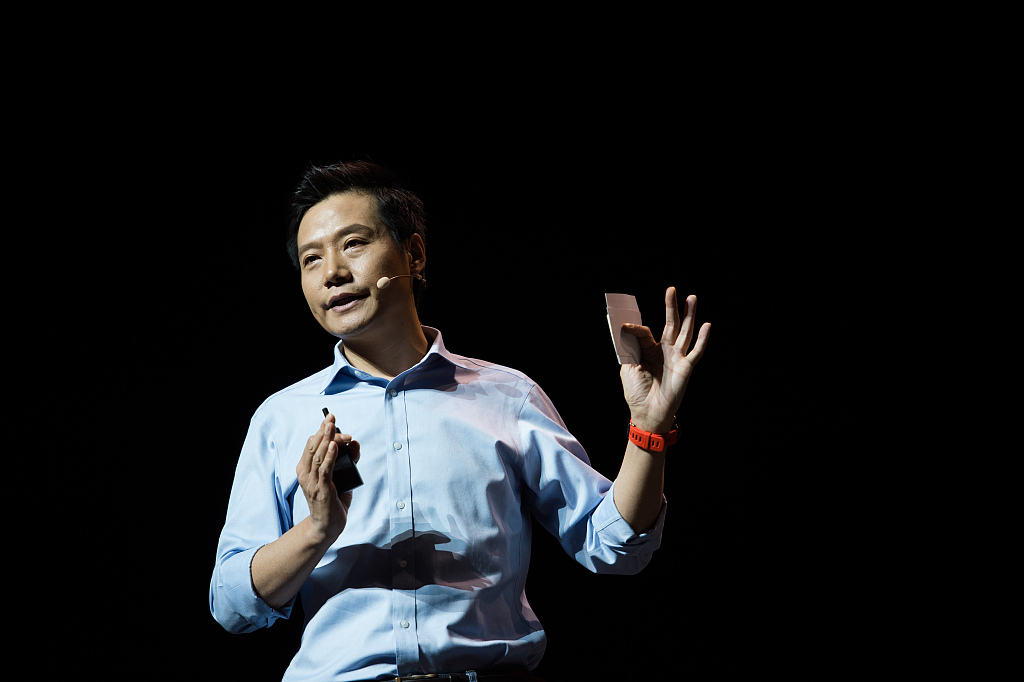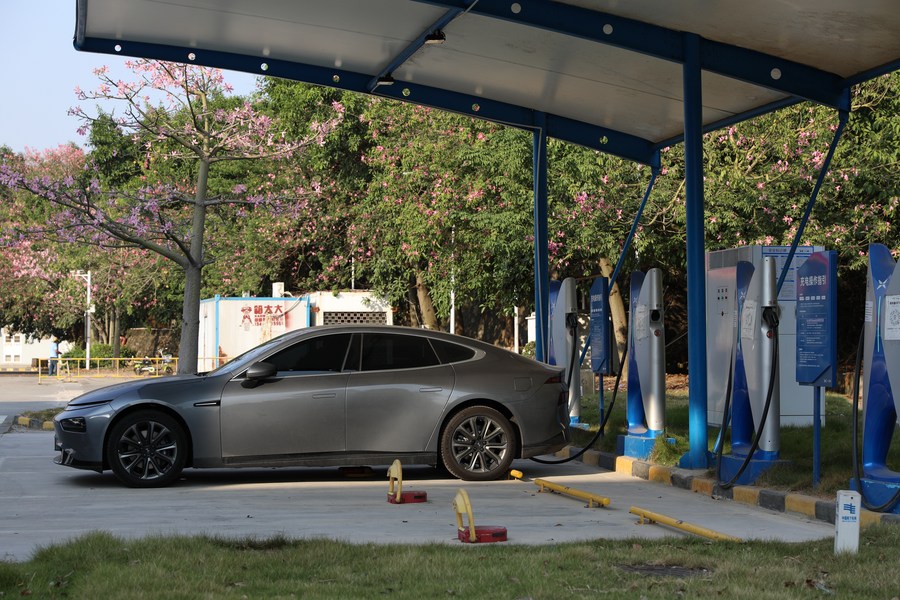NPC deputy calls for national strategy on humanoid robots, vehicle data security
- ?By Zhu Bochen
 0 Comment(s)
0 Comment(s) Print
Print E-mail ?China.org.cn, March 10, 2023
E-mail ?China.org.cn, March 10, 2023

Lei Jun, founder and CEO of Chinese tech giant Xiaomi [Photo/VCG]
Lei Jun, founder and CEO of Chinese tech giant Xiaomi and also a deputy to the 14th National People's Congress (NPC), has proposed measures to enhance the nation's strength in robot manufacturing and the auto industry during the ongoing "two sessions."
The tech entrepreneur's suggestions include offering support for achieving breakthroughs in core technologies concerning humanoid robots, establishing and improving the management system for vehicle data security, and strengthening the soft power of the nation's auto industry.
The humanoid robot system is complex and dynamic, and is closely related to emerging technological fields such as autonomous driving, and their development is set to become an important focus in socioeconomic growth and global strategic sci-tech competition, Lei wrote in his suggestions.
According to him, the key to developing humanoid robots lies in improving the function and performance of core components and promoting in-depth integration between robotics and other emerging technologies.
Given that China currently lacks systemic industrial development plans in the sector, Lei suggests the nation offers support to sci-tech companies along the industrial chain, improves supporting policies and measures, and guides the industry in formulating regulations on data security management, in a bid to effectively allocate resources and comprehensively advance the high-quality development of the humanoid robot industry.
To improve the nation's weak links in the key generic technologies in core components and bridge the gap between technology and application, Lei believes that the nation should support enterprises in taking the lead to establish a national innovation consortium, fostering a long-term innovation mechanism, and strengthening joint research efforts on core technologies.
He also recommends establishing an open source innovation platform for all-purpose humanoid robots to reduce technological costs, and developing application scenarios involving smart manufacturing and elderly-care services.
According to the latest report on the work of the government, China's spending on research and development increased from 2.1% to over 2.5% of GDP last year, and the contribution of sci-tech progress to economic growth exceeded 60%. Lei believes that the figure speaks volumes about the nation's increasingly strong sci-tech innovation capacity and solid development foundation.

A new energy vehicle is seen charging at a service area on the Guangzhou-Shenzhen Expressway in Guangdong province, Oct. 27, 2022. [Photo/Xinhua]
In addition, Lei's suggestions touch on the risks brought about by the popularization of intelligent connected cars. While constituting an important factor for the growth of digital economy, information concerning vehicle routes and geographical locations have posed challenges to personal privacy and public interests.
Currently, China has released several recommended national standards for data security related to automobiles, and brought better order to online ride-hailing services and auto manufacturers in terms of data collection. To further expand the scope of regulation, Lei advocates introducing rating and classification measures for vehicle data. He also suggests establishing a certification, rating and disclosure system for the data security of intelligent connected vehicles, in order to improve transparency and reliability in the sector.
China's auto industry has demonstrated strong growth momentum due to the leapfrog development of the new energy sector. According to the China Association of Automobile Manufacturers, in 2022, new energy vehicle (NEV) sales came in at about 6.89 million units in China, skyrocketing 93.4% year on year. NEV production soared 96.9% from a year earlier to about 7.06 million units. The country's auto exports also saw a 54.4% year-on-year increase to 3.11 million units.
To further help transform China into an auto manufacturer of quality, Lei has proposed a series of measures to boost the sector's soft power, such as developing more vehicle-related tourism programs and boosting the circulation of secondhand cars.





